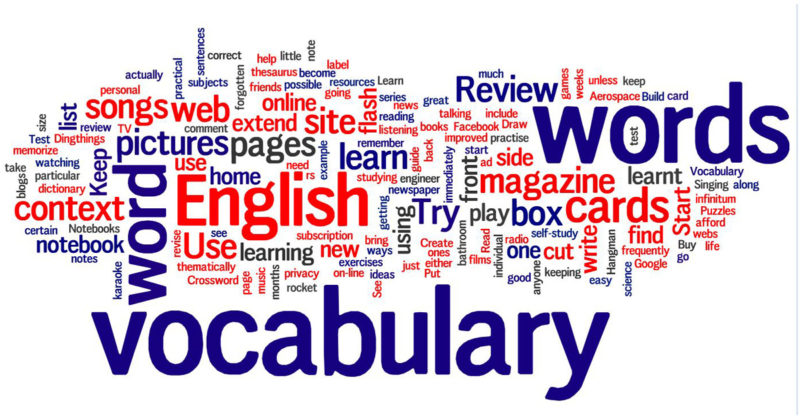 Language is a powerful tool that can help unite or even bring discord. In addition, being multilingual has greater advantages especially when stepping out into the world, both at the professional and personal level.. However, amongst languages, we find that English, as a global language, carries great power in bringing together cultures, people and ideas. Yet to wield this power, one must be able to communicate effectively and meaningfully. For students, this often becomes a challenge as they must grapple with both the subject matter and the language. The writer suggests reading as one of the most effective and fastest ways to develop English proficiency.
Language is a powerful tool that can help unite or even bring discord. In addition, being multilingual has greater advantages especially when stepping out into the world, both at the professional and personal level.. However, amongst languages, we find that English, as a global language, carries great power in bringing together cultures, people and ideas. Yet to wield this power, one must be able to communicate effectively and meaningfully. For students, this often becomes a challenge as they must grapple with both the subject matter and the language. The writer suggests reading as one of the most effective and fastest ways to develop English proficiency.
English Language Power
English as a language plays a very important role in the modern education system. It acts as a medium of communication, exchange of thoughts in different fields in educational institutions, offices, businesses, and its usage is worldwide. Students are trained and taught to learn, speak, read and write in English from the day they are admitted to a school. English, being a secondary language and because of its richness, it is not as easy to learn as our mother tongue. Although its learning is challenging, it is very valuable. It is a learning tool for students to explore the world. Using the English language one can analyze and understand various things and situations around by assessing various sources of information. It enables the student to express thoughts into words and excel in academic performances such as assessments, exams, and other curriculum. It is the language of the internet which an estimated user of 565 million people everyday; and 52 percent of the most visited websites are displayed in the English language.
The gap between understanding and self-expression is one of the major problems faced by the students. This causes the students to hesitate in participating in class discussions pertaining to the subject matter and other activities. Shyness and language problems make students feel uneasy and often prevents them from raising their doubts. Language should not become a stumbling block in the learning process. However, grammatical errors are different from the language problem, which is complex in nature. Though students have a larger scale of understanding the subject matter in their minds, when it comes to description and speaking in their own words, they become victims of the language and are unable to express their innermost thoughts. Students, of course, are able to understand the concept of what they are studying for, but when it comes to analyzing the concept in one’s own words it becomes hard to communicate effectively in English. Even in terms of employment, in both the private and government sectors, preferences are given to candidates with fluency with better language apart from the professional and technical skills. Thousands of graduates enter the job market every year and as such, language and communication skills have become an added advantage. There is a need now to not only confine learning to acquire degrees or educational qualifications but equipping ourselves with soft skills and language proficiency. English is the official language of 53 countries and spoken by 400 million people across the globe. As per the British council projection, by 2020 two billion people in the world will be studying in English.
To address these problems, one must be mentally ready and confident enough to use knowledge without hesitation. It needs one’s effort and time to practice and listen. According to the National Association for the Education of Young Children (NAEYC) the brain develops faster than any other point in lives at the early childhood before the age of eight. As such, a major step to overcoming the language problem would be to start the training early on. Students outreach program is also an important tool for students to overcome language problems and to improve communication skills during such programs where the students are encouraged to be the facilitators. Classroom discussions and presentations will play a big role in improving communication skills. Creating safe zones in the classrooms to speak their minds, whether right or wrong and engage in discussion and debate can help boost our confidence and rid us of our inhibitions. The culture of keeping silent in the teaching and learning process between students and teachers needs to be redefined so that learning can be productive and meaningful.. Further, one of the best ways or techniques to get rid of language problems is spending time reading books. Reading books engages one’s mind to think differently and enhances one’s vocabulary to help vocalize their thoughts better. One’s student years are the ideal time for us to immerse ourselves deeper into the habit of reading, whether it be a magazine, newspaper or a novel. So, why not get started and try picking up a book or article today.
Degree of Thought is a weekly community column initiated by Tetso College in partnership with The Morung Express. Degree of Thought will delve into the social, cultural, political and educational issues around us. The views expressed here do not reflect the opinion of the institution. Tetso College is a NAAC Accredited UGC recognised Commerce and Arts College. The editors are Dr Hewasa Lorin, Dr. Aniruddha Babar, Dr. Pfokrelo Kapesa, Webei Tsühah, Meren and Kvulo Lorin.
For feedback or comments please email: dot@tetsocollege.org
Featured image source: https://quotesgram.com/

